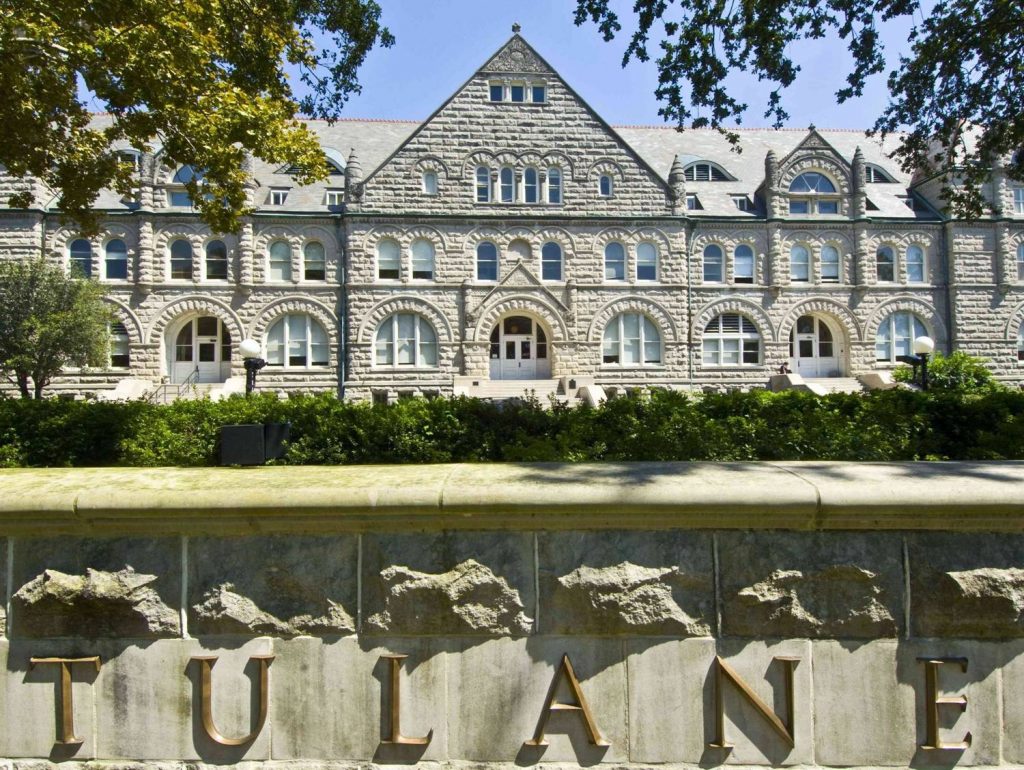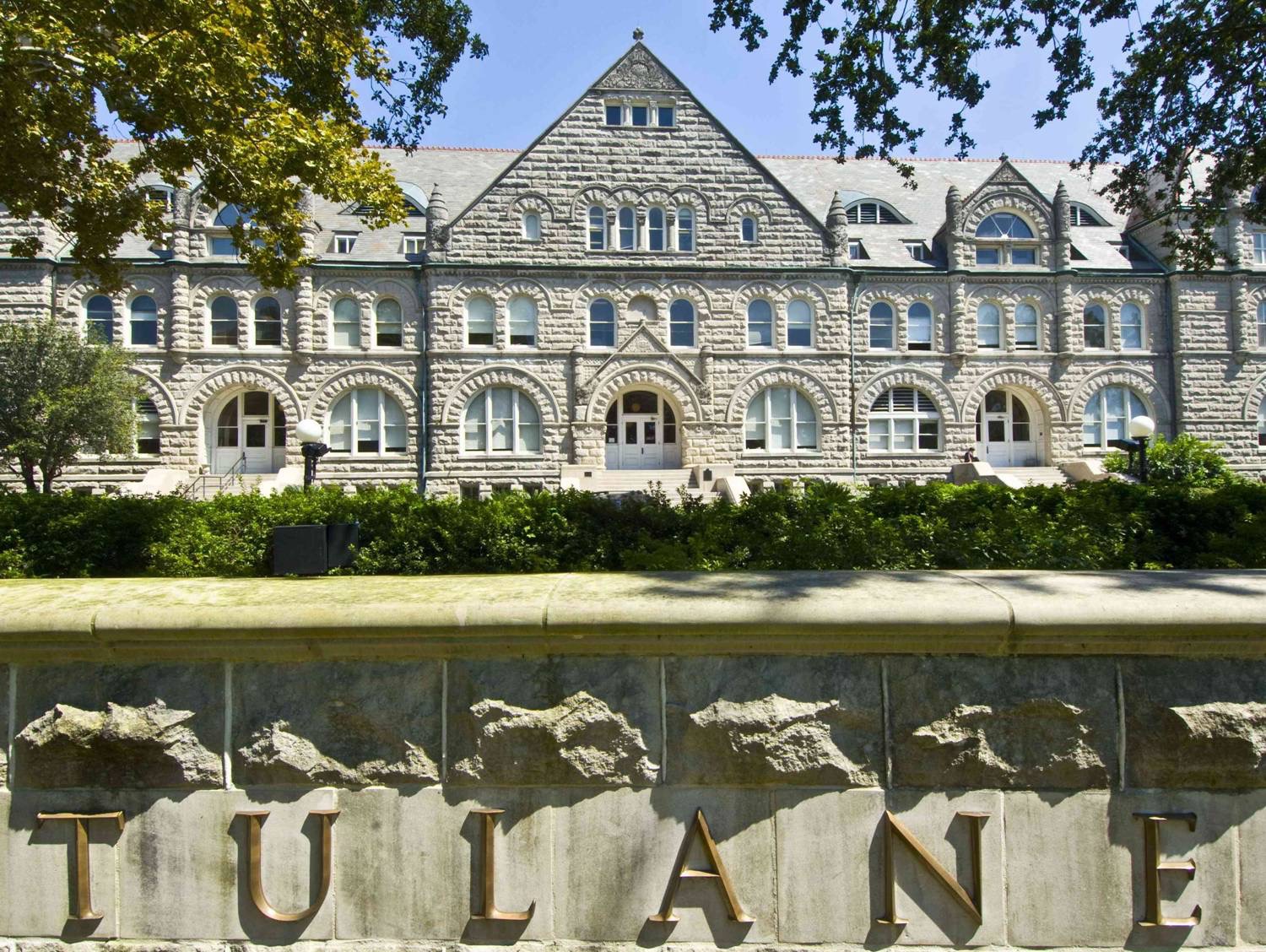Embrace the Place; become a part of the city at Tulane
By Kris Olson
My visit to Tulane, a private university in New Orleans, Louisiana, was amazing in so many ways. As a first-time visitor, I had no idea what to expect. All I had ever heard about New Orleans was the craziness of Bourbon Street and Mardi Gras and, of course, the devastating effects of hurricane Katrina. But the experience I had at Tulane, and in the city of New Orleans, gave me a picture vastly different from what I had imagined. Not that I had a negative picture, I just didn’t know how the university fit into the surroundings of the city of New Orleans, or NOLA as students often refer to it. What I discovered was that Tulane considers itself part of the fabric of New Orleans; the city is a cultural center, with amazing opportunities for learning, serving the community, music, dance and, of course, incredible food! Students are urged to, “embrace the place, and become part of the city.”

Location
It’s hard to talk about Tulane without talking about the city of New Orleans. “The city is a cultural center, a brain magnet, attracting yuppies from all over,” according to Associate Director of Admissions, Lindsey Hoyt. Tulane is a part of the community; and the community is a part the college. Commitment to public service is a requirement of the Core Curriculum at Tulane, enabling students to become involved in any number of different organizations and projects in and around the city. Those service opportunities can often directly relate to the student’s academic major.
Location-wise, as it relates to the much talked about French Quarter, Tulane is about a 45-minute ride on the scenic and historic St. Charles Street Car.; Hopping off the Street Car at the Tulane stop, I instantly noticed, right across the street, the St. Charles Avenue entrance to the beautiful Audubon Park, where students were running around the Audubon Lagoon, picnicking and studying in the grass. Families, too, were enjoying the park, photographing the waterfowl and playing Frisbee. Crossing St. Charles Avenue, I headed to the Tulane University entrance and Gibson Hall, which houses the Office of Undergraduate Admissions.
Admissions
Tulane is considered a selective university; meaning that the average GPA of students admitted is 3.6, and the range of ACT scores is 30-33. Admittance to Tulane is highly competitive; students should have a strong high school record including honors, AP or IB courses, but successful applicants are also actively involved in their schools and communities.
Tulane is a small-to-medium size school, with an undergraduate enrollment of 7,600 (2018); but don’t let the small size fool you. Tulane is an important research institution, offering a large variety of research opportunities and leadership options for curious, motivated students.
Academics
“At Tulane, it’s important to remember that ‘good fit’ doesn’t necessarily mean ‘comfort’ — You should stretch yourself, challenge yourself, and use your time here to grow academically and socially,“ said Hoyt during an extremely well-attended information session. Tulane allows you to do this through their flexible curriculum. When you apply as a freshman, you do not apply to a certain school, and have the flexibility to figure out what you like and what you are good at before choosing you major.
“One of the best things about Tulane,” said Linnea, a current freshman, “is having the ability to take classes from any one of the 5 colleges, making it easier to explore classes before choosing a major at the end of sophomore year. Another student (my tour guide) was an architecture major, but has also enjoyed taking classes in business and art. He also raved about the URBANbuild program, where architecture students have the opportunity to actually build a home. If you are interested in architecture, check it out on the Tulane.edu website!
Tulane’s flexible curriculum is a huge draw for students interested in gaining an interdisciplinary education. A full 30-percent of Tulane students double, or even triple, major. The smaller class size is also a big plus, averaging 23 students per class (in majors), or an 8:1 student to faculty ratio. Faculty is known for being highly accessible to students.
Some of the most popular majors at Tulane are: Business, Management, Marketing, Public Health, Biological and Biomedical Sciences, and Social Sciences and Related Support Services, Health Professions, Science and Engineering, and Architecture, among others.
Campus Life

Students at Tulane have a positive affect on the community around them. On campus, there are 200+ clubs and organizations, and students love to be involved. One of the favorite, and most unique, programs on campus is called TUSTEP, a service-dog training program. Puppies on campus – what could be more fun!
Greek life is popular as well, and about 40% of students participate. Rush takes place 2nd semester in order to give freshman students time to adjust to college life, make friends and decide whether or not Greek life is for them. There are so many activities to choose from and become involved in, that being “Greek” is not a must-do for anyone.
Tulane’s D1 sports teams are very popular, and school spirit thrives on campus. The club teams are also competitive and travel for match-ups.
Tulane is a university offering amazing opportunities to learn, do research, and find your career path. For more information on everything from academic majors to cost of tuition, refer to the Tulane.edu website.


